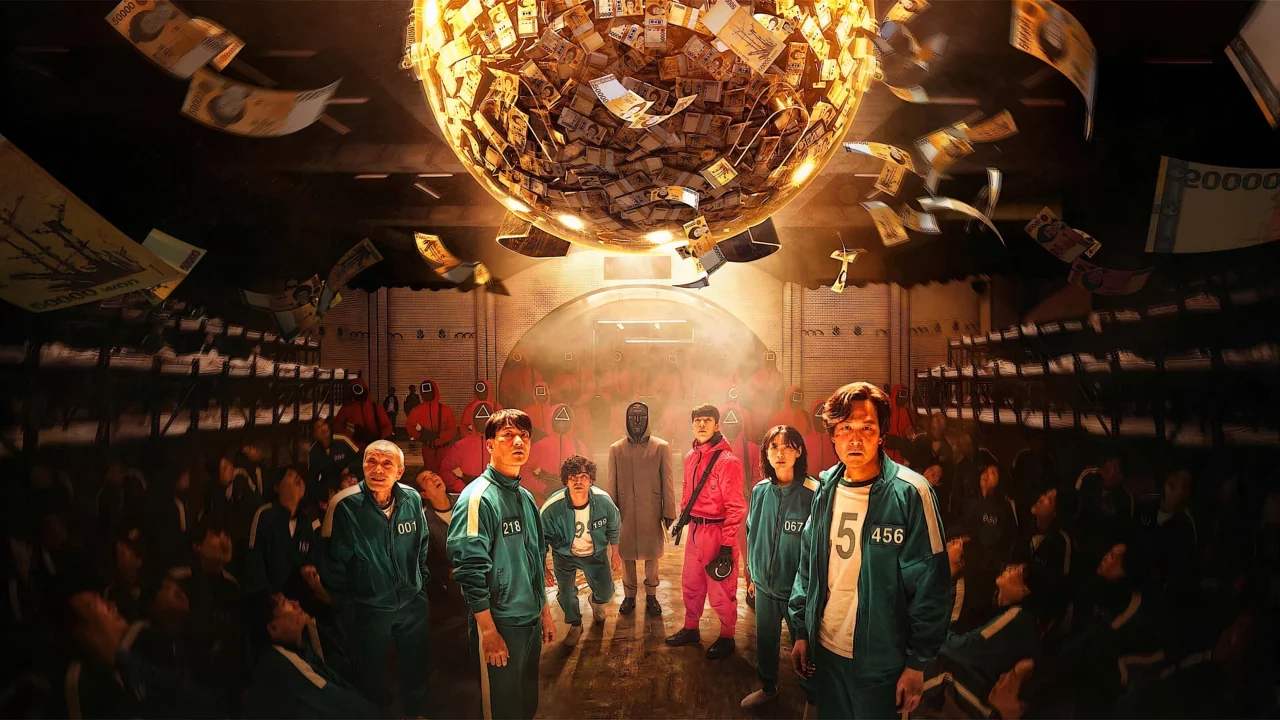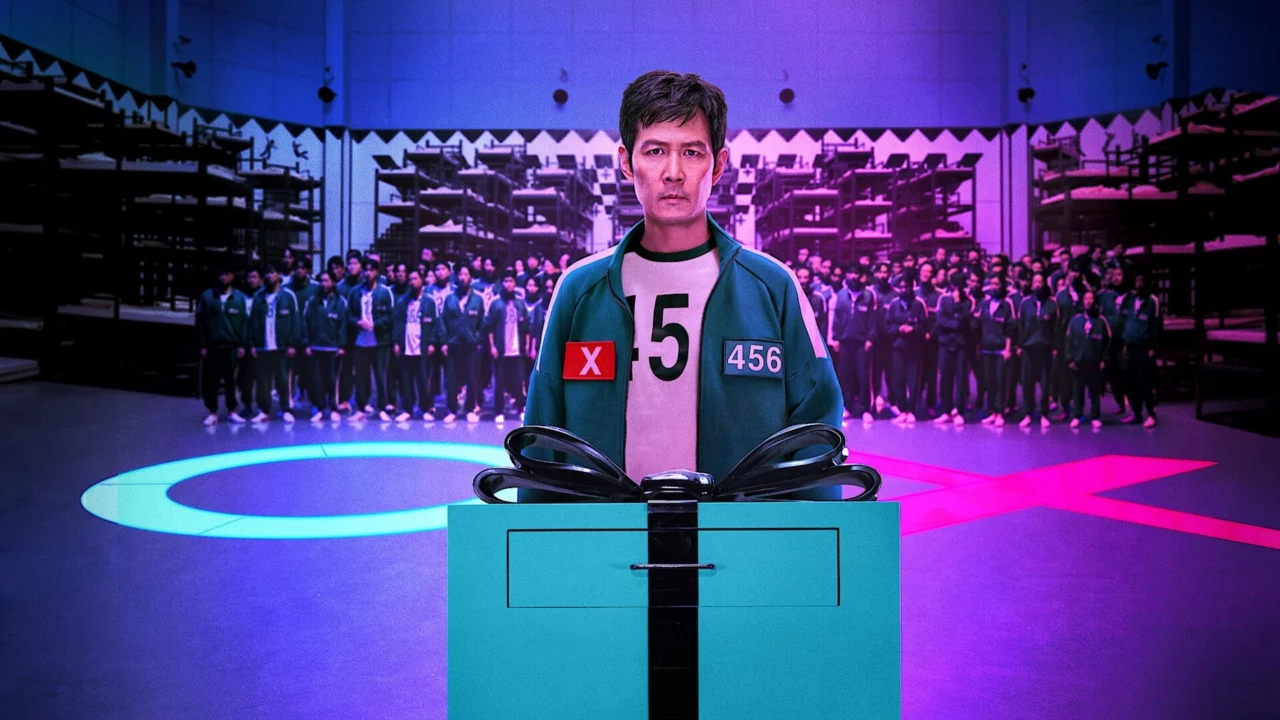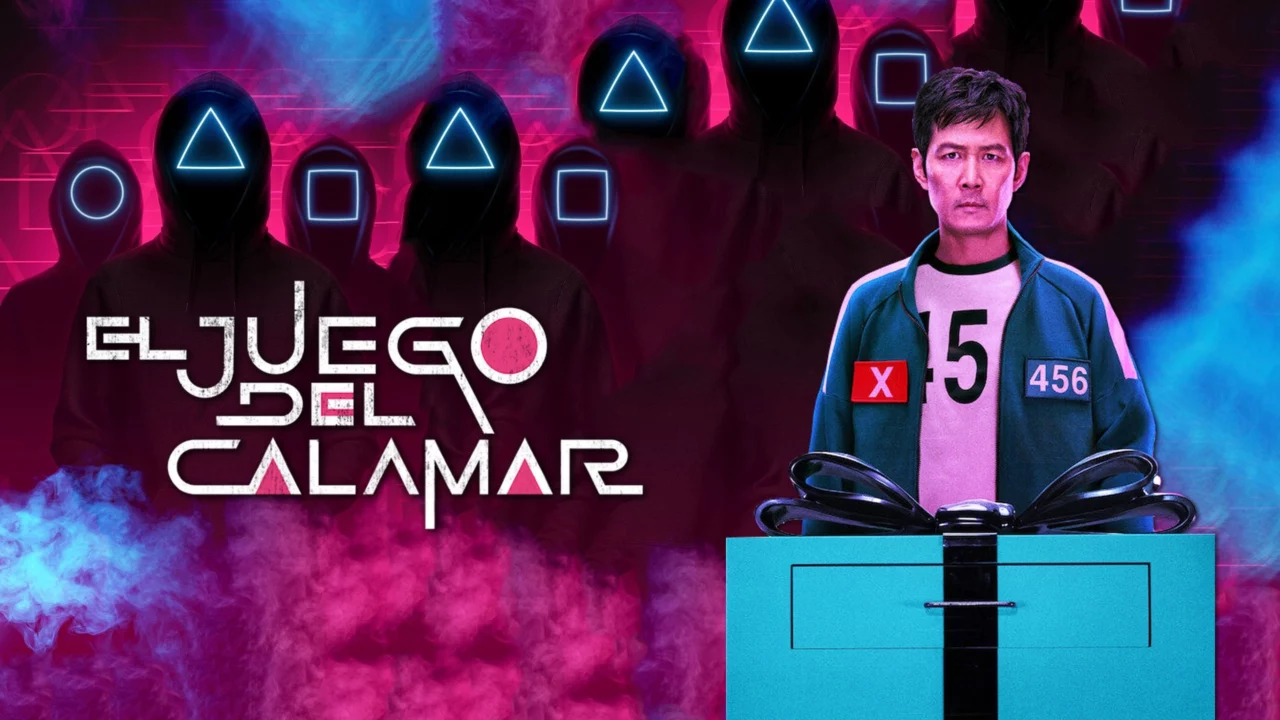Squid Game Season 3 marks the dramatic conclusion to Netflix’s most successful Korean drama series. Created and directed by Hwang Dong-hyuk, this final season continues the story of Seong Gi-hun (Lee Jung-jae) as he faces his last confrontation with the deadly games. The series maintains its signature blend of psychological thriller, social commentary, and brutal survival drama that captivated global audiences.
The final season features the return of lead actor Lee Jung-jae as the traumatized protagonist Gi-hun, alongside Lee Byung-hun as the Front Man. The cast includes Park Sung-hoon, Kang Ae-shim, and Choi Seung-hyun (T.O.P.). This concluding chapter promises to resolve the intense cliffhangers and moral dilemmas while delivering the visceral storytelling that made Squid Game a cultural phenomenon.

Plot and Storyline
Squid Game Season 3 picks up immediately where Season 2 left off, with Gi-hun facing the ultimate consequences of his rebellion. The season’s seven episodes escalate the psychological tension and moral complexity that have become the series’ trademark. The games reach a grim crescendo in this climactic third season.
The narrative structure maintains the series’ signature pacing, building tension through both intimate character moments and large-scale action sequences. Each episode balances the brutal game sequences with deeper exploration of the characters’ motivations. The storyline delves into the origins of the games while providing satisfying resolution to character arcs.

Cast Performance
Lee Jung-jae delivers what may be his most powerful performance as Gi-hun, showcasing the character’s evolution from naive participant to hardened survivor. His portrayal captures the psychological toll of multiple seasons of trauma while maintaining the character’s core humanity. I found his performance particularly compelling in the final confrontation scenes.
Lee Byung-hun continues to excel as the Front Man, bringing layers of complexity to what could have been a simple antagonistic role. His performance balances menace with unexpected vulnerability. The supporting cast provides strong emotional anchors that ground the series’ more fantastical elements in genuine human emotion.

Visual Excellence and Production
The production design maintains the series’ distinctive visual language while expanding its scope for the final chapter. The iconic game environments receive fresh interpretations that feel both familiar and surprising. The cinematography captures both the claustrophobia of game spaces and the vastness of the conspiracy.
The costume design continues to use stark contrast between players’ tracksuits and guards’ geometric masks. The color palette remains deliberately limited, using bold primary colors to create maximum visual impact. Special effects blend seamlessly to create the visceral impact that has always distinguished Squid Game.
Direction and Writing
Creator and director Hwang Dong-hyuk brings his three-season vision to a satisfying conclusion, demonstrating remarkable consistency in tone and theme. His direction balances the series’ multiple genres without losing focus on the central narrative drive. I appreciate how he maintains the series’ social commentary without becoming preachy.
The writing successfully addresses complex moral questions while providing concrete resolution to central mysteries. The dialogue maintains the naturalistic feel that has always grounded the series’ more outlandish elements. Character interactions feel authentic even in extraordinary circumstances.
Music and Sound Design
The sound design creates an immersive audio landscape that enhances both intimate character moments and large-scale action sequences. The use of silence and ambient sound creates tension that complements the visual storytelling. The musical score provides emotional depth without overwhelming the narrative.
The series continues to use childhood songs as haunting counterpoints to adult violence. This creates the disturbing juxtaposition that has always been central to Squid Game’s identity.
Critical Reception
Squid Game Season 3 has received generally positive reviews from critics. On Rotten Tomatoes, 83% of 41 critics’ reviews are positive. Critics have praised the series for bringing its complex narrative to a satisfying conclusion while maintaining the visual and thematic elements that made it successful.
Professional reviewers have described it as A staggeringly excellent final season that recaptures the emotional core of the first season. However, some critics noted that certain elements feel repetitive, though this serves the series’ thematic purposes. Social media reactions have been mixed, with passionate responses demonstrating the continued cultural relevance.
What Works
Character Resolution – Season 3 succeeds in providing meaningful conclusions to character arcs developed over three seasons. Each major character receives appropriate closure that feels earned rather than forced.
Visual Consistency – The production maintains the distinctive visual style while finding fresh ways to present familiar elements. I was impressed by how they managed to keep the iconic look while adding new elements.
Thematic Depth – The final season successfully resolves central themes without oversimplifying complex social issues. The social commentary remains sharp and relevant.
Areas for Improvement
Pacing Issues – Some episodes feel slightly rushed in their attempt to resolve multiple plot threads. This occasionally diminishes the emotional impact of key moments.
Repetitive Elements – While thematically appropriate, certain game sequences feel too similar to previous seasons. This potentially reduces their shock value for returning viewers.
Final Verdict
Squid Game Season 3 successfully concludes one of Netflix’s most important original series, delivering the emotional and narrative resolution that fans have been waiting for. While it may not reach the cultural impact of the first season, it provides a satisfying end to Gi-hun’s journey and the larger social commentary.
The season demonstrates that Hwang Dong-hyuk’s vision was always bigger than a single season phenomenon. For viewers who have followed the series from the beginning, Season 3 offers the closure and catharsis that such an intense journey demands. I believe this finale will be remembered as a worthy conclusion to a groundbreaking series.
Rating: 4/5
